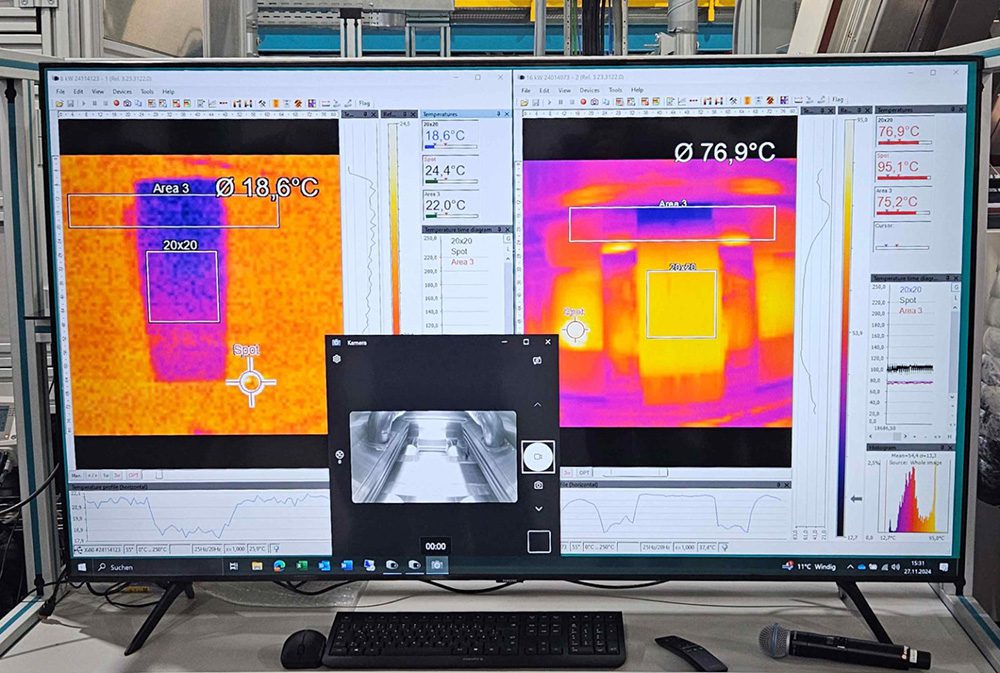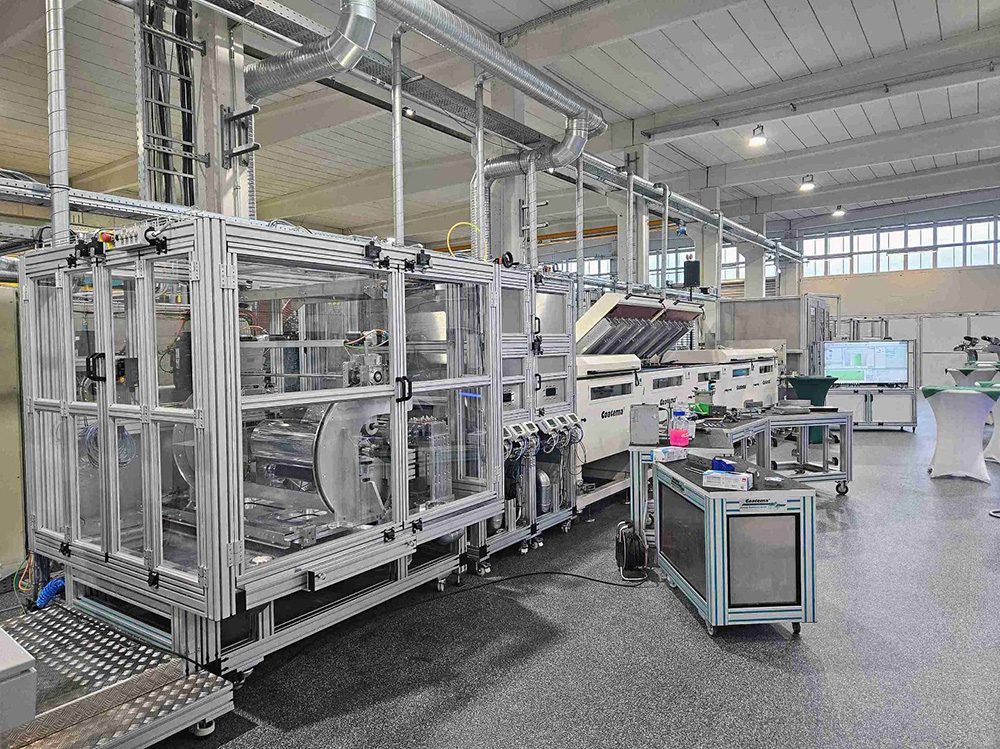The Implementation of Laser Drying Processes for Economical & Ecological Lithium Ion Battery Production (IDEEL) research project in Germany developed a laser-assisted roll-to-roll (R2R) drying process that could reduce the cost of lithium-ion battery manufacturing, according to German research organization Fraunhofer FFB.
The hybrid process combines conventional, oven-based convection drying with laser drying based on high-power diode lasers. It achieves a web speed of 30 meters per minute and reduces drying times by more than 60% while maintaining the same quality of results.
The laser booster at the beginning of the process halves the required oven length, reducing the need for energy-intensive drying rooms and reducing operational costs by 20-30%.
This approach allows the new process to be used in existing plants, which can then be retrofitted with laser modules.

The IDEEL project, which was completed on December 31, 2024, after a three-year term, looked for alternative drying processes using highly efficient large-area laser irradiation.
The project was supported by the Federal Ministry of Education and Research as part of the Battery 2020 funding program and was carried out under the leadership of Laserline.
The Fraunhofer FFB participated with the Production Engineering of E-Mobility Components (PEM) center at RWTH Aachen University, Coatema Coating Machinery, Optris, the Fraunhofer Institute for Laser Technology (ILT) and the Münster Electrochemical Energy Technology (MEET) Battery Research Center at the University of Münster.
The focus of the IDEEL research collaboration was initially the development and step-by-step optimization of an appropriate laser drying process. For this purpose, new materials for anode and cathode coatings were specifically designed for laser applications, and aqueous formulations based on graphite, lithium iron phosphate, and silicon-graphite were successfully tested at PEM and MEET.

A high-efficiency diode laser system with an electrical efficiency of over 50% and a new processing optics with coaxial thermography coupling and a rectangular laser spot over 0.5 meters wide supplied by Laserline was used as the heat source. Optris, Laserline and Fraunhofer ILT developed a highly integrated thermography camera with industry-PC-compatible data output for contactless, automatic process monitoring and control, ensuring a constant adherence to the target temperature at varying web speeds and coating thicknesses.
Coatema developed a modular laser drying unit with a specialized air concept and custom double-chamber wide-slot nozzles for the fast and secure application of water-based battery slurries. Within this demonstrator, the laser-based R2R drying process was scaled to industry-standard feed speeds, and Fraunhofer determined and validated the optimal process configuration.
The hybrid process developed within the IDEEL project will be integrated into the work of Fraunhofer FFB, which is to be expanded into the development center for modern battery cell production for Germany and its European partners.
Source: Fraunhofer FFB
